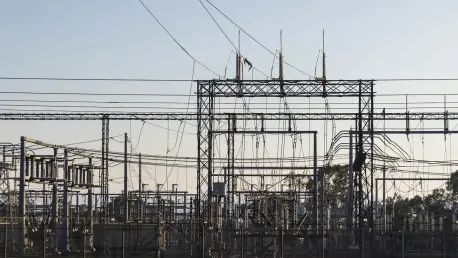The Nigerian Electricity Regulatory Commission (NERC) recently introduced a groundbreaking governance code specifically designed to transform the Nigerian Electricity Supply Industry (NESI). This code emerges as a pivotal tool aimed at enhancing governance standards and refining boardroom norms across the power sector. Fueled by the broader goal of attracting investments, improving service delivery, and instilling accountability within the sector, NERC’s initiative underscores a strategic shift in regulatory practices. As this code commences its implementation, stakeholders within Nigeria’s energy landscape are keenly observing its potential to reinvigorate the industry by fostering transparency and ethical leadership.
Strategic Framework for Accountability
Limitation on Directorships
Central to the governance code is the limitation on board directorships within the power sector, reflecting NERC’s determination to eradicate conflicts of interest that often impair board effectiveness. It stipulates that individuals may no longer serve on more than two boards simultaneously, a rule poised to cultivate a boardroom environment where directors commit fully to their appointed roles. By restricting the practice of holding multiple directorships, NERC aims to ensure that board members concentrate on driving forward the strategic goals of their respective organizations without external obligations competing for their focus and allegiance. This decisive measure not only serves to bolster boardroom integrity but also strengthens the credibility of decision-making processes within Nigeria’s electricity market, laying a foundation for improved governance.
Disclosure and Transparency Requirements
Another integral aspect of the new code is its emphasis on disclosure and transparency, which seeks to eliminate overlaps and maximize corporate discipline. Current and prospective board members are mandated to disclose all extra board roles, thereby ensuring that conflicting interests are identified and managed appropriately. Through transparent practices, the NESI endeavors to foster ethical conduct and firm corporate discipline among its leaders, addressing issues that have previously undermined institutional trust. By institutionalizing disclosure obligations, NERC sets a boundary against opaque dealings that have historically diminished trust among industry stakeholders and investors. This move towards transparency is envisaged as a catalyst for bolstering credible governance and reshaping the operational framework within Nigeria’s power sector.
Enhancing Leadership and Board Standards
Board Composition and Tenure
To further refine leadership within NESI, comprehensive standards concerning board composition and tenure are incorporated into the governance code. Large electricity companies are now required to constitute boards with no fewer than seven members, featuring at least two executive directors and an independent director. This composition is meticulously designed to amalgamate diverse perspectives while maintaining an equilibrium between executive influence and independent oversight. In addition, board tenure is capped at a maximum of 12 years, enforcing periodic rotation that introduces fresh ideas while preventing leadership complacency. Such policies outline a future where dynamic governance continually rejuvenates the industry, paving the way for sustained developmental trajectories and innovative business methodologies. By establishing these guidelines, NERC lays the groundwork for empowered boards orchestrating comprehensive strategies for the sector’s evolution.
Executive Roles and Leadership Mandates
Within the newly established governance framework, the delineation of executive roles receives pronounced emphasis. The governance code distinctly separates the positions of board chairman and chief executive officer (CEO), ensuring their non-overlapping responsibilities. While the chairman remains a non-executive director with restricted daily operational participation, the CEO bears the responsibility for meeting specific educational and professional qualifications. In their roles, CEOs are limited to two consecutive five-year terms, a restriction engineered to nurture a top-level leadership defined by innovation and strategic foresight. Through this structured approach to executive roles, NERC underlines the necessity for leaders who not only possess the expertise to navigate sector complexities but also adhere to the ethical standards essential for powering the industry’s advancement. Ultimately, this clarity surrounding leadership roles reinforces purpose-driven governance tailored to optimize sector performance.
Compliance and Enforcement Challenges
Mandatory Compliance and Penalties
With the governance code, NERC extends its reach into imposing mandatory compliance, reinforcing the code’s function as more than just a suggestive regulatory guide. These regulations are obligatory, with non-compliance liable to attract substantial penalties. Licensees are required to disclose their adherence to these statutes, wherein NERC pledges to enforce these standards with its extensive authority under the Electricity Act 2023. The rigorous enforcement of compliance rules serves as a critical governance mechanism, signaling NERC’s commitment to sustaining high levels of integrity across the industry. This unyielding adherence to standards is seen as pivotal in transforming Nigeria’s power sector into a magnet for investment and operational efficiency, ready to tackle the exigent demands of the evolving electricity market.
Enforcement vs. Implementation Concerns
While the code itself may embody the potential for sector reinvigoration, concerns regarding its enforcement remain a focal point of discussion among industry analysts. Given Nigeria’s historical challenges with regulatory compliance, skepticism persists about the code’s practical application and its ability to deter non-compliance among influential industry players. Addressing enforcement intricacies requires a cooperative approach that aligns NERC’s objectives with the administrative capacities of industry operators. Ensuring stringent compliance without bias is essential for maintaining the governance code’s integrity and fostering a transparent operational environment free from inefficiencies. As NERC endeavors to fulfill the expectations set by this ambitious regulatory shift, comprehensive enforcement strategies must be pursued to convert policy aspirations into real-world reforms that uphold accountability and stimulate sectoral excellence.
Future Prospects and Impact
Investor Confidence and Market Transformation
NERC’s governance code stands as a comprehensive attempt to revamp Nigeria’s power sector leadership and accountability paradigms. By curtailing overlapping interests that historically hindered swift decision-making, the code sets the stage for heightened investor confidence within the sector. As investments pour in, the sector is anticipated to witness profound transformations that will energize efficient operations and economic resurgence. The collective governance framework championed by NERC fosters a robust institutional environment, where stakeholders can engage in transparent and productive dialogue, encouraging collaboration that propels the sector forward. Notably, such streamlined governance practices are positioned to align with Nigeria’s broader economic objectives, anchoring a strategy of reliable power supply and facilitating development across diverse sectors.
Long-Term Potential and Sector Reforms
The Nigerian Electricity Regulatory Commission (NERC) has introduced a transformative governance code aimed at revolutionizing the Nigerian Electricity Supply Industry (NESI). This code serves as a vital instrument to elevate governance standards and refine boardroom practices across the power sector. Driven by the overarching aim of attracting investments, enhancing service delivery, and reinforcing accountability in the industry, NERC’s initiative marks a significant shift in regulatory strategies. With the implementation of this code, stakeholders within Nigeria’s energy sector are attentively monitoring its potential to rejuvenate the industry by promoting transparency and ethical leadership. This forward-thinking approach not only seeks to bolster investor confidence but also strives to ensure a reliable and efficient power supply for the nation. As the code embarks on its journey to reshape the sector, its impact remains crucial for a sustainable and prosperous future in Nigeria’s energy landscape.









